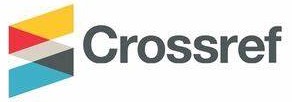Efektivitas Larva Black Soldier Fly (Hermetia Illucens) dalam Mereduksi Pakan Limbah Organik Sawi Putih dan Daun Singkong
DOI:
https://doi.org/10.32938/jsb/vol3i2pp68-72Keywords:
North Central Timor Regency, Feed Reduction Effectiveness, Organic Waste, Black Soldier FlyAbstract
Black Soldier Fly (BSF) is an insect that reduces organic waste by utilizing its larvae which will extract energy and nutrients from vegetable waste such as mustard and cassava leaves waste, fruits, food scraps, animal carcasses, and feces as food ingredients. This study aimed to see the effectiveness of BSF larvae in reducing feed organic waste of chicory and cassava leaves. The method used in this research is a laboratory and experimental scale experiment. The results of this study showed that the effectiveness of BSF larvae in reducing organic waste feed on cassava leaf waste samples was 57% for 1x3 feeding frequency, but decreased in 1x1 feeding frequency, which was 40%. While the percentage value of sample reduction by BSF larvae in chicory samples was 53% for 1x3 feeding frequency, but experienced a decrease in 1x1 feeding frequency, which was 38%. The effectiveness level of BSF larvae in reducing waste samples can be said to be effective at 1x3 feeding frequency.
Downloads
Published
How to Cite
Issue
Section
License
Authors who publish articles in Journal Science of Biodiversity agree to the following terms:
- Authors retain copyright of the article and grant the journal right of first publication with the work simultaneously licensed under a CC-BY-SA or The Creative Commons Attribution–ShareAlike License.
- Authors are able to enter into separate, additional contractual arrangements for the non-exclusive distribution of the journal's published version of the work (e.g., post it to an institutional repository or publish it in a book), with an acknowledgment of its initial publication in this journal.
- Authors are permitted and encouraged to post their work online (e.g., in institutional repositories or on their website) prior to and during the submission process, as it can lead to productive exchanges, as well as earlier and greater citation of published work (See The Effect of Open Access).









.png)




